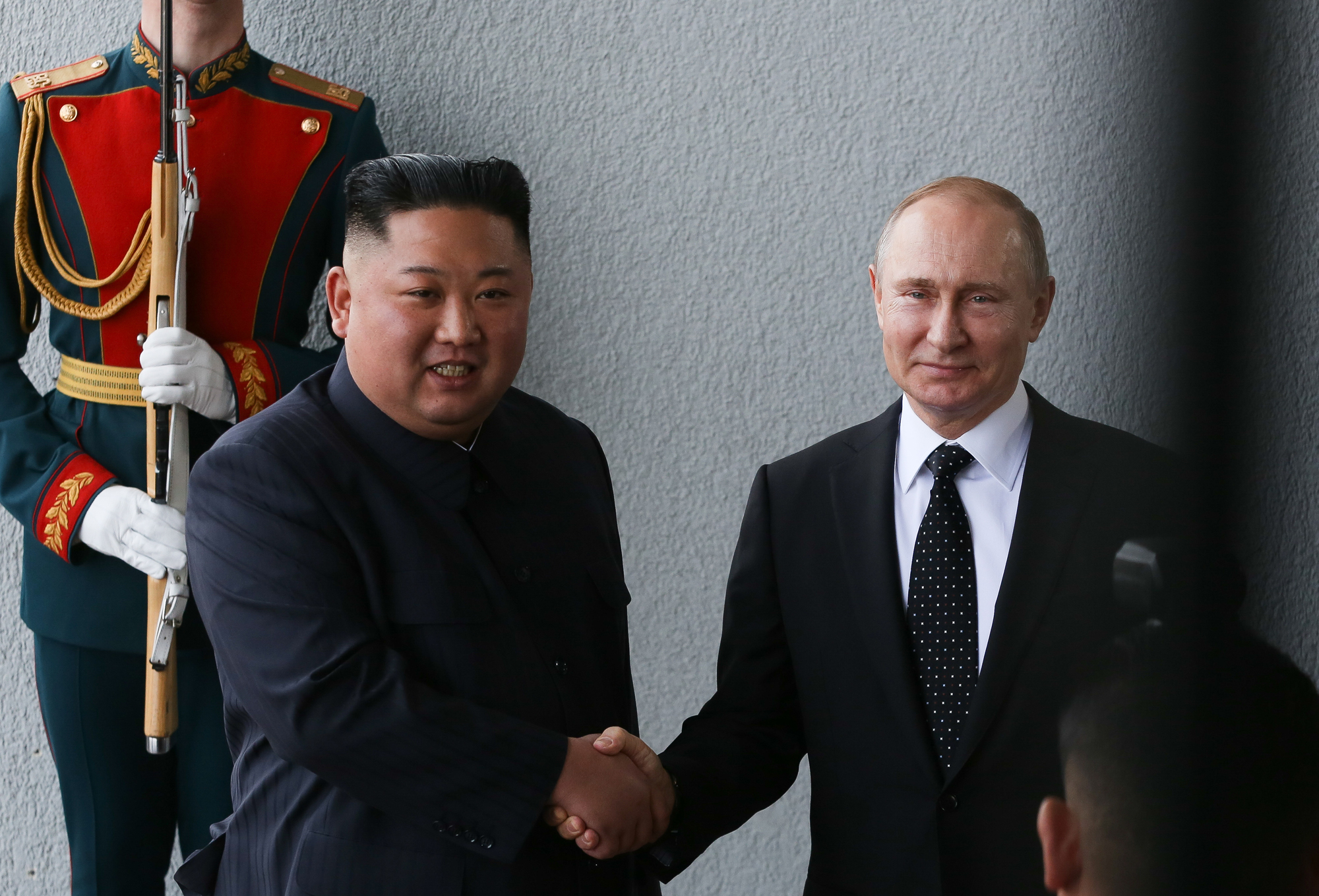Prime Minister Shinzo Abe prioritized pomp over policy while hosting U.S. President Donald Trump this week. The one exception was the issue of North Korea, which recently conducted more short-range missile tests off its east coast. Abe is clearly anxious about keeping Japan and the United States on the same page now that Trump's denuclearization talks with North Korean dictator Kim Jong Un have faltered. But at a joint news conference Monday, Trump dismissed concerns about the latest tests — breaking not just with Abe but also his own advisers.
Abe has every reason to worry that Kim is gaining an important diplomatic edge. To be sure, as the North Korean economy struggles and food shortages loom, Kim's bromance with Trump has failed to secure an easing of economic sanctions. But he has now reshuffled his negotiating team and tried to strike a statesmanlike pose, offering to hold yet another summit with Trump if the terms are right.
At the same time, Kim has been shoring up his position for further negotiations, not least by reaching out to China and Russia. Such overtures by the North Korean regime certainly are not unprecedented, but they are unusual. As the scion of a dynasty that has jealously guarded the North's independence for 70 years, Kim, like his grandfather, Kim Il Sung, the state's founder, regards national self-reliance as sacrosanct. Though China and Russia are the Kim regime's traditional allies, Kim's grandfather and father, Kim Jong Il, always kept their distance from the two powers, often playing one off against the other. By contrast, Kim is teaming up with both to tilt the geostrategic field in his favor.



















With your current subscription plan you can comment on stories. However, before writing your first comment, please create a display name in the Profile section of your subscriber account page.